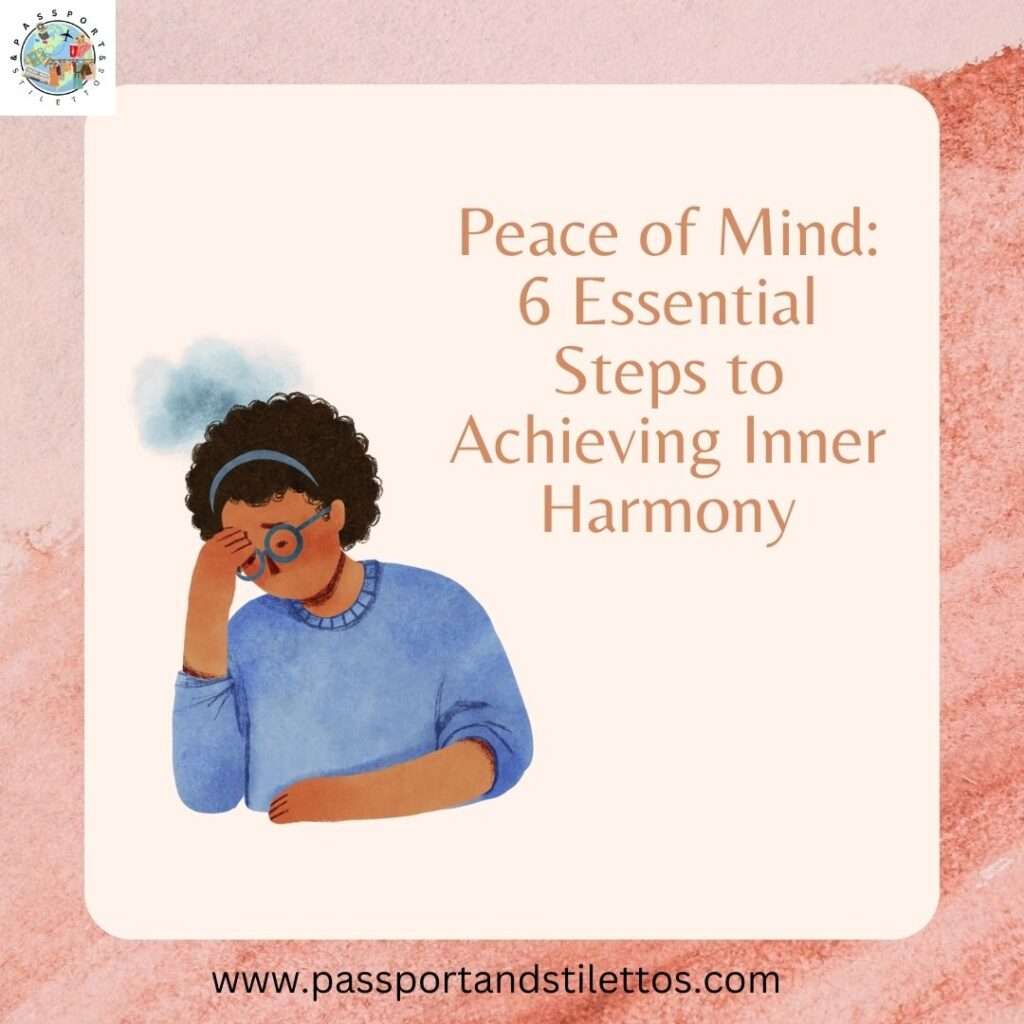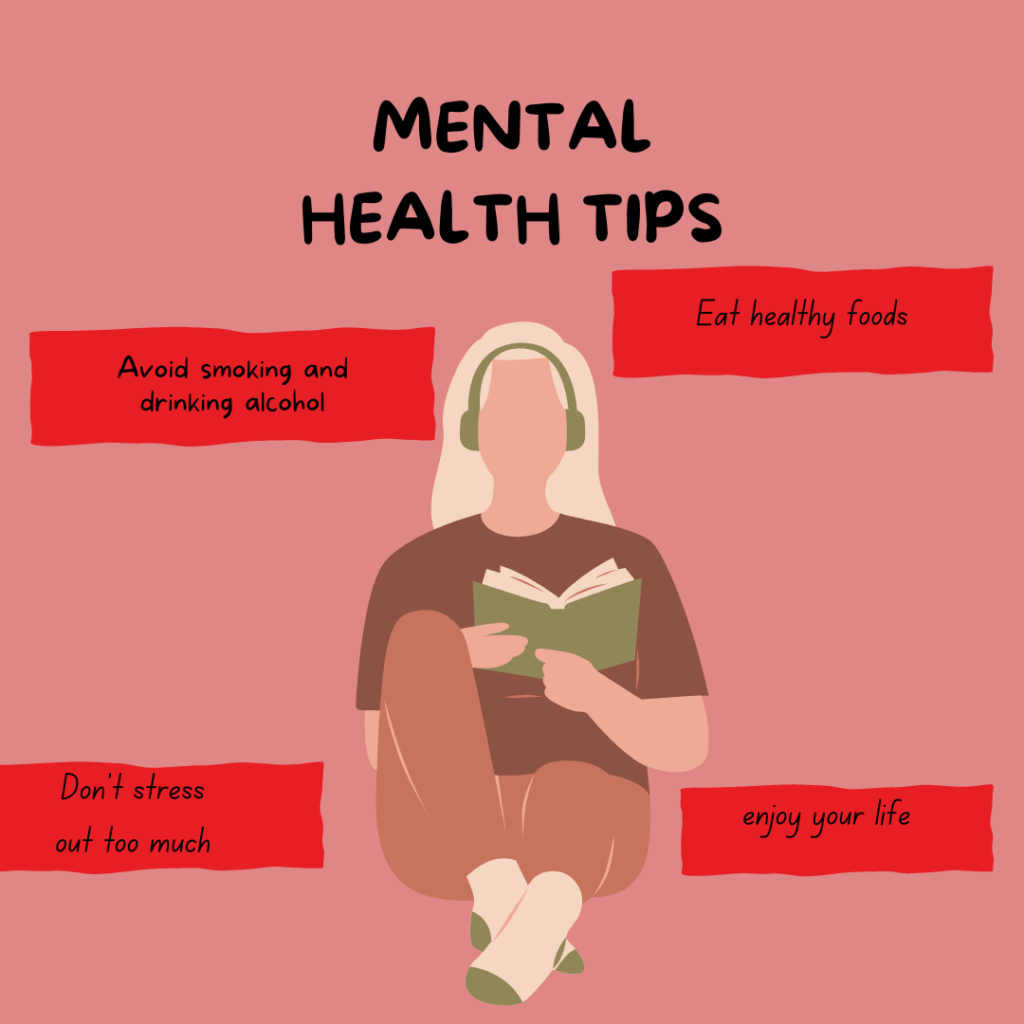
A quiet mind may appear to be a friend you seldom have the opportunity to keep up with in a hurried environment. However, attaining peace of mind is attainable.
Inner quiet, often known as peace of mind, refers to an interior state of tranquillity. When you have a sense of mental peace, you may experience:
- at rest inside yourself,
- with a sense of self-compassion
- unaffected by day-to-day concerns
- ready to welcome whatever life throws your way.
You could believe that you can only achieve peace within yourself when you are finally rid of all problems, but this is not the case.
In fact, it frequently works the other way.
Internal serenity can increase general fulfillment and fulfillment, regardless of the problems you confront.
A relaxed and peaceful attitude might help you sail the frequently tumultuous waves of life more effortlessly.
Achieving peace of mind isn’t as difficult as it appears. You can get peace of mind by:
- accepting what cannot be changed.
- forgiveness of oneself and others
- concentrating on the present moment
- going inside
- writing your feelings and thoughts
- linking to Mother Earth

To begin started on your journey for peace of mind, consider the following suggestions anytime, anywhere:
1.Admit what you can’t change or influence.
You cannot manage your mind by merely telling it, “Be more peaceful,” just as you cannot control your life.
Life is unpredictably unexpected. Various problems will arise from time to time, disrupting your daily routine and making you uncomfortable, fatigued, or even terrified.
It’s reasonable to be concerned about a parent’s illness or to be disappointed and furious over a recent job loss. When you become fixated on those feelings, though, they might gradually take over, disrupting your peace of mind and making coping more difficult.
Ignoring such emotions in order to go on with life is also ineffective. Suppressed emotions can become more intense, leaving you significantly less peaceful in the long run.
Acceptance, on the contrary hand, is frequently effective. According to research, acknowledging your own opinions and feelings is an effective method.
You can also attempt cognitive restructuring by reminding yourself of the following:
“What is happening now will not last forever. Meanwhile, I’m doing my best.”
“This is a difficult situation, but I’ll get through it.”
“I’m terrible right now, but I won’t always be this way.”
It’s normal to want to avoid discomfort, therefore developing the practice of acceptance might take time. However, as it grows more natural, you will likely feel more at ease.
If you don’t have peace of mind, you could start to detect symptoms of stress and anxiousness, such as:
- sleep disruptions
- pains and aches
- weariness and poor energy
- stomach discomfort
- rage or irritation difficulties concentrating strain.
- disagreement in relationship
2.Practice forgiving others
When someone mistakes you or treats you unfairly, it is reasonable (and perfectly natural) to feel wounded, even enraged.
However, carrying grudges or slights will not help you attain inner peace.
Nursing sentiments of anger, disappointment, or resentment consume a lot of emotional energy and can lead to physical and mental health problems, such as:
- sleep problems
- poor heart health
- stomachache
- depression
- anxiety
Forgiveness benefits more than just the individual who is forgiven. In the end, it may be able to accomplish much more for you. Self-forgiveness is also necessary.
Of all, forgiving isn’t always as simple as snapping your fingers. It is frequently a lengthy and emotionally taxing process that extends beyond simply stating, “I forgive you.” Compassion and empathy, as well as acceptance, are required for forgiveness.
That also applies to your own behavior. Going over past mistakes will not erase what occurred, but it will keep you stuck in self-blame and sorrow.
3.Meditation should be practiced with attentiveness.
Is acceptance proving to be more challenging than you anticipated? A guiding tool might sometimes make it simpler to let go of troubling thoughts.
Why not try meditation for stress relief? Increased self-awareness, less stress, and favorable brain changes are just a few of the numerous possible advantages of this ancient Hindu practice.
Mindfulness meditation, in particular, appears to increase awareness of the current moment, whether it is joyful or painful. In general, it aids in the management of emotional distress.
Mindfulness is an essential component of Buddhist meditation. Inner calm is seen as a fundamental component of well-being in Buddhism.
Both concentrated meditation and improved awareness can help you recognize, agree and let go of physical and emotional suffering that would otherwise agitate your mind.
This acceptance, combined with a daily meditation practice, can go a long way toward establishing long-term peace of mind.
If you are new to meditation, here is a quick guide for you.
4.Set aside time for yourself.
While spending excessive time alone might lead to feeling alone spending just the correct amount of time alone can boost your well-being and ultimately lead to finding peace of mind in a hectic world.
Setting aside time for isolation can help some people develop a deeper feeling of happiness over time.
5.Maintain a journal
Perhaps your English teacher assigned you to keep a daily journal. You undertook the practice reluctantly initially, but with greater excitement and devotion once you learned that writing down your sentiments did, in fact, present you with an alternate point of view.
Journaling can assist you in processing and expressing emotions that you might otherwise keep to yourself.
Writing, of course, will not solve your problems. However, you may discover that putting thoughts to paper relieves some of their mental strain and leads to peace of mind from a rare occurrence to more of a rule.
Here are some links for you to get your hands on Journals for your peace of mind:
6.Return to nature.
Do you go to the woods (or the seas) when you require a break from the daily grind?
Your intuition is supported by a wealth of research: Natural surroundings, particularly green spaces, help alleviate mental distress and promote emotions of inner serenity and peace of mind.
Spending time in outdoors can help you achieve peace of mind by:
- reducing the risk of depression and other mental health issues by relieving worry, anger, or fear, reducing stress, and increasing relaxation
- increasing feelings of kindness and social connectedness
- enhance concentration and focus
Here are a few suggestions:
- Visit a park in your neighborhood.
- Visit a national forest.
- Hike through rocky terrain (safely) to test yourself.
- Unwind at a nearby lake or beach.
- Gardening allows you to get your hands dirty.
Tip: Whatever you decide, suggest leaving your phone at home.
Conclusion:
In conclusion, peace of mind is not a destination but a continuous practice. It’s about finding harmony within ourselves amid life’s inevitable ups and downs. By integrating the principles discussed in this article into our daily lives, we can inch closer to this cherished state. Remember, it’s okay to seek help when needed, and it’s okay to have moments of turbulence. The pursuit of peace is a lifelong journey, and each step taken brings us closer to the serenity we all seek. So, let’s keep walking, one mindful step at a time, towards the tranquil shores of inner peace.

Also Read:
Financial Wellness: Budgeting and Saving Tips 2023
Written by: Anshika Patra
